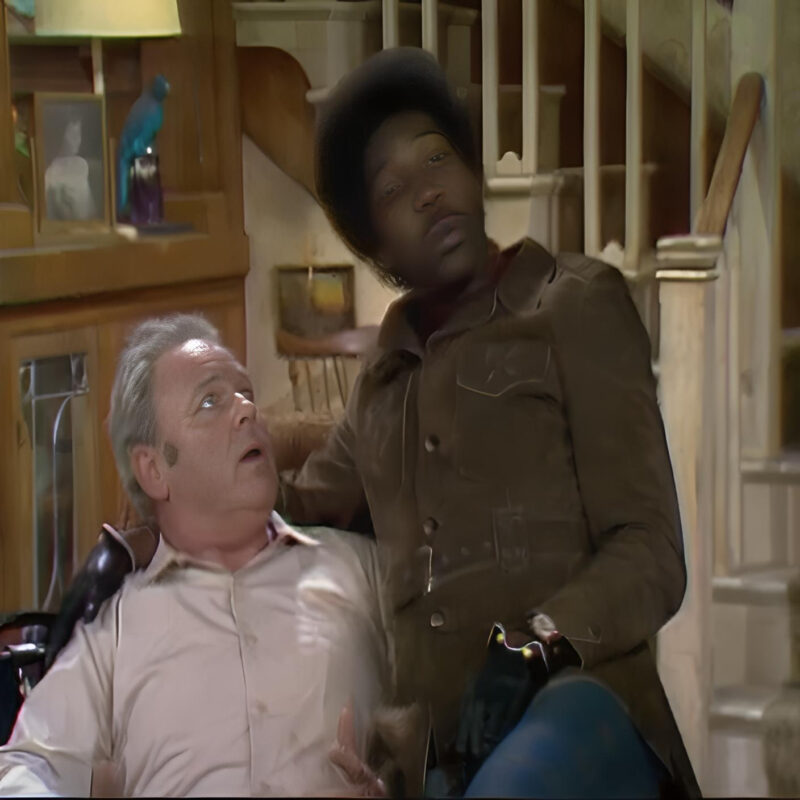
The success of “Key and Peele,” which concludes its run today, is built on the sharp edge of racial satire—a genre that has found its place in contemporary television. This achievement, however, would have been unthinkable fifty years ago. It was the pioneering sitcom “All in the Family,” featuring the iconic character Archie Bunker, that first dared to navigate the turbulent waters of racial comedy on prime-time TV.
In 1971, “All in the Family” broke new ground by incorporating racist language and racially themed jokes into its episodes. This bold move was met with high ratings, demonstrating to networks and advertisers alike that racial satire could indeed be profitable. However, this success was not without controversy.
While networks celebrated the show’s ratings, many journalists, politicians, and scholars were deeply concerned about its impact on racial relations. They feared that the sitcom was playing with fire during a time of race riots, violent struggles over school desegregation, and busing. The show’s massive viewership only intensified these worries. At its peak in 1974-75, “All in the Family” was watched by 50 million Americans—one-fifth of the population. Critics questioned whether the show was undermining bigotry as the producers claimed or reinforcing racism by attracting audiences who relished Archie Bunker’s offensive rants.
Forty years after “All in the Family” ended its reign as the number one prime-time show, the answer to this debate has become clearer. Historians, examining the wealth of remaining evidence, have concluded that there was no “silent majority” of racists cheering on Archie Bunker. Instead, for most viewers, the show furthered racial tolerance.
Throughout the 1970s, academics and pollsters closely monitored the response of both white and African-American viewers to the show. Twenty-four empirical studies conducted between 1971 and 1979 explored whether Archie’s racism was reinforcing bigotry. An early article by Neil Vidmar and Milton Rokeach suggested that the show was “more likely reinforcing prejudice and racism than combating it,” as “high prejudiced persons” watched it more frequently and identified more with Archie Bunker. This finding significantly influenced the debate but was later deemed inaccurate.
All studies consistently found that truly bigoted viewers did indeed favor Archie more than others. However, this group was relatively small, comprising only 5 to 15 percent of the audience. They were vastly outnumbered by the “mid-dogmatics”—a large majority (60 percent or more) who held mixed attitudes and were open to learning from racial satire. These viewers often showed contradictory feelings, such as simultaneously liking and disliking Archie or appreciating both Archie and his anti-racist counterparts, Mike and Lionel.
Carroll O’Connor, who played Archie, noted in 1972 that white viewers often told him, “Archie was my father; Archie was my uncle.” They used the past tense, indicating a recognition of change and a halting attempt to reach out beyond bigotry.
Most viewers enjoyed Archie Bunker’s antics while understanding his moral shortcomings. Surveys revealed that Archie was both the most liked and the most disliked character on the show, with the majority seeing him as a foolish, “likable loser.” This perception limited his influence in political contexts, such as when actor Carroll O’Connor campaigned for political candidates.
Norman Lear, the show’s producer, hoped that comedy could chip away at bigotry. While “All in the Family” may have provided a relief valve for true bigots, it did not radicalize or multiply them. Instead, it played a subtle but significant role in reducing racial prejudice by shifting attitudes among the mid-dogmatic majority of viewers. By holding up a mirror to societal prejudices, “All in the Family” helped foster a more reflective and tolerant audience, paving the way for future shows like “Key and Peele” to explore racial satire in even more nuanced ways.
